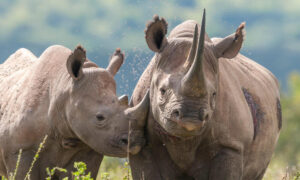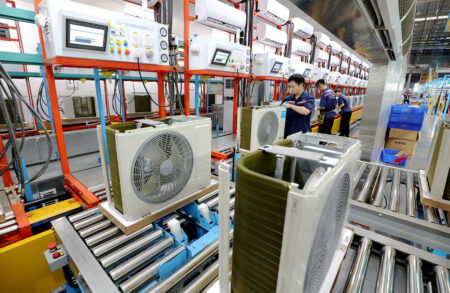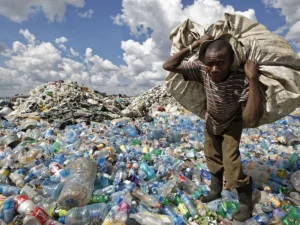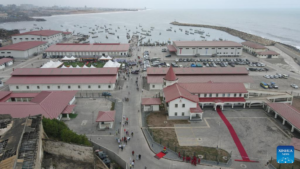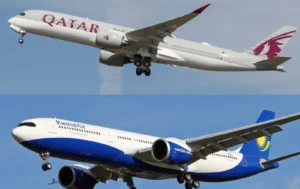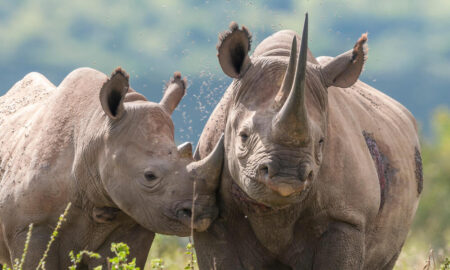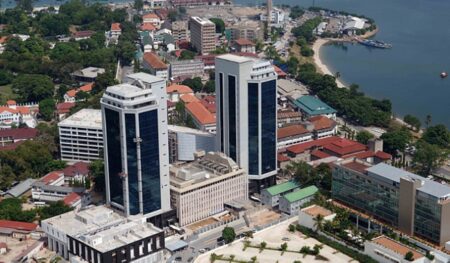- From safari icons to status symbols: The dual fate of Tanzania’s black rhinos
- Tanzania taps $149 million IMF loan for budgetary support
- Africa poised for fastest growth in $8 trillion cooling systems market
- Rwanda-based Bboxx eyes generating $100M worth of carbon credits in Africa
- Telemedicine Services in Murang’a County: Kenya’s technological Initiative to Decentralize Healthcare
- The bitter pill of cocoa’s value chain in Ghana and Ivory Coast
- Rwanda, Kenya, and Guinea: Is Africa’s plastic-free revolution taking shape?
- Africa’s AI revolution: Navigating opportunities, risks, and security concerns
Africa
- The market for sustainable cooling systems in developing economies is set to hit $600 billion by 2050. Research shows that sustainable cooling systems can cut cooling-related emissions by almost 50%.
- They can also help lower electricity bills, reduce equipment costs, and power sector investments by $8 trillion by 2050.
- Unlocking finance, in particular private finance, is essential to support the transition to sustainable cooling across developing economies.
Economies in Africa are projected to experience the fastest growth in cooling systems, a new survey by the International Finance Corporation and the UN Environment Programme (UNEP)-led Cool Coalition shows.
Globally, Africa is poised to see her cooling systems industry expand by a factor of seven closely followed by countries in South Asia which will see this market segment quadruple.
“The sustainable cooling market represents at least a 600-billion-dollar opportunity for the private sector, …
- Guinea has announced a single-use plastic ban, signalling the growing momentum of the African plastic ban movement.
- Guinea prohibits the production, import, sale, and use of single-use plastics, including plastic bags and oxo-degradable plastics.
- The country now joins trailblazers Rwanda, Kenya and Somalia, who banned single-use plastics in their jurisdictions.
Africa is experiencing a vital environmental wave with the increasing rollout of tough measures on single-use plastics. With trailblazers Rwanda and Kenya having banned single-use plastics, Guinea has joined the elite club, announcing a sweeping ban on single-use plastic products and packaging.
Early this year, Somalia joined this movement, banning the use of single-use plastics beyond June 30, 2024. Authorities in the Horn of Africa country urged individuals and businesses to explore using environmentally friendly alternatives to meet their packaging needs.
This move by the West African country signals a historic moment for the continent's push to counter the…
- Innovation is the route to business, company, industry and national success story.
- To realize this success, however, governments must create policies that encourage and support innovation at scale.
- For Africa, the jury is still out on the role of governments in driving innovation.
From the developed to emerging to the underdeveloped economies, one thing that policymakers agree is that innovation drives industrial and therefore national progress. It creates opportunity for individuals and investors, grows businesses, and powers a nation’s development agenda. For these reasons, policymakers are advised to place emphasis on innovation.
Matt Banholzer, an economics researcher and author of How innovation can accelerate industry momentum report explains that while macroeconomics concept of development correctly looks at the economy as a whole, policymakers must not be naïve to think policies of the ‘whole’ will foster development of the individual and vice vasa.
The researcher is of the view that policymakers, …
Taking into account the 2022 International Day of Women and Girls in science; it’s imperative to assess the state of Africa’s water security which needs to be urgently addressed.
Africa is bearing the brunt of the climate change crisis, yet had no hand in its creation only contributing a paltry 4 per cent of the global greenhouse gas emissions; spelt by the numerous natural disasters from floods, drought and famine, locust infestation to tropical cyclones, which have put significant water stress in the continent.
In a series of initiatives, African leaders are spearheading strategies for resolving the quandary pertinently its impact on Africa’s water security and sanitation. Nearly 63 per cent of urban areas in Sub-Saharan Africa lack access to basic water and sanitation.…
However, economic growth and the rapid expansion of digital and mobile services are set to change this.
With the African middle class growing across many African nations, the target market for insurance products is growing.
The report highlighted that there has been a significant rise in demand for digital solutions, as smartphone and affordable internet penetration deepens across the continent, providing opportunities for InsureTechs to step in and offer innovative products.…
This as 19 per cent of people in sub-Saharan Africa lived in areas not covered by mobile networks while an additional 53 per cent did not use mobile internet despite having coverage.
The need for accessible internet solutions comes after Meta (formerly Facebook) announced plans to shut down its low-cost Express Wi-Fi internet.
The programme was launched back in 2016 to drive internet connectivity in regions where other forms of connectivity, like ADSL and fibre-optic networks, aren’t readily available or established.…
Apart from the absence of a public strategy for the continent, there is a lack of coordination among various state and para-state institutions working with Africa.
Despite the growth of external players’ influence and presence in Africa, Russia has to intensify and redefine its parameters. Russia’s foreign policy strategy regarding Africa has to spell out and incorporate the development needs of African countries.
Unlike most competitors, Russia has to promote an understandable agenda for Africa: working more on sovereignty, continental integration, infrastructure development, human development (education and medicine), security (including the fight against hunger and epidemics), normal universal human values, the idea that people should live with dignity and feel protected.…
- World Bank reports that insect farming could provide over 14 per cent of the crude protein needed to rear all the pigs, fish, poultry and goats in Africa
- Dorte Verner, a Lead Economist at World Bank, says that it is possible to feed all people in the world with nutrient-rich insects and decrease the environmental impact of food and agriculture
- The population of Africa could hit 2.53 billion people by 2050, and the demand for food and protein would increase significantly, which the current linear food system might not satisfy
Most people see insects as ugly, dirty and irritating creatures that are only good at transferring germs. However, according to the World Bank, insects farming could answer Africa’s poverty, hunger and ecological crisis.
Despite their dirty nature, insects have a pack of great nutritional value, and the world could use them to tackle malnourishment in the continent, especially in children.…
Findings show that increasing costs in every market due to a year of supply disruption did not deter data centre demand in most markets including Nairobi and Johanessburg.
The two African capitals were among 44 other locations that were surveyed.
According to the study, despite the negative impact of the coronavirus pandemic, demand remained relatively steady when compared to other industries owing to governments’ decisions to make working and schooling from home mandatory. …
